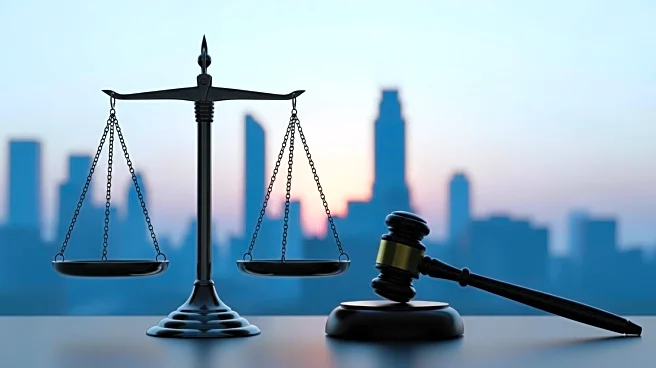What's Happening?
The UK government has announced plans to grant police forces stronger powers to manage and restrict repeated protests. This decision follows the arrest of nearly 500 individuals during a demonstration supporting a banned pro-Palestinian group. The move is part of a broader effort to address public order concerns and ensure that protests do not escalate into violence or significant disruption. The government aims to balance the right to protest with the need to maintain public safety and order, especially in light of recent demonstrations that have drawn large crowds and led to numerous arrests.
Why It's Important?
The enhancement of police powers to manage protests is significant as it reflects the government's response to growing public order challenges. This development could impact civil liberties, particularly the right to protest, which is a fundamental democratic principle. The decision may lead to debates over the balance between security and freedom of expression. It also highlights the government's stance on handling politically sensitive issues, such as the Palestine demonstrations, which have garnered international attention. The new measures could affect how future protests are organized and conducted, potentially deterring large-scale demonstrations due to increased legal and logistical hurdles.
What's Next?
As the UK government moves forward with these changes, there may be legal challenges from civil rights groups concerned about the potential infringement on the right to protest. Political leaders and advocacy organizations are likely to scrutinize the implementation of these powers to ensure they are not used excessively or unjustly. The government will need to communicate clearly about the scope and limitations of these powers to avoid public backlash. Additionally, there may be increased dialogue between law enforcement and community leaders to address concerns and ensure that protests can occur peacefully and safely.










